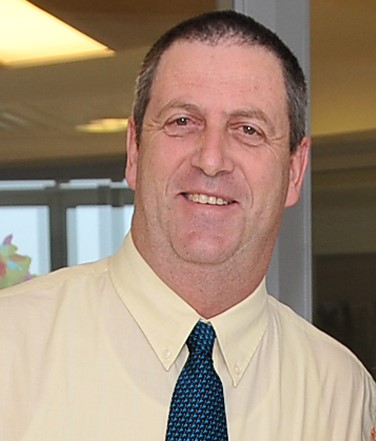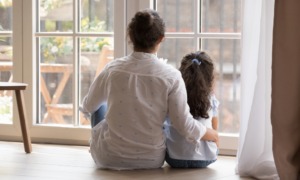 One in every five children around the world suffers abuse, neglect and trauma during their childhood. In the United States, “Child Maltreatment 2014” reported 3.6 million child abuse cases annually, involving approximately 6.6 million children.
One in every five children around the world suffers abuse, neglect and trauma during their childhood. In the United States, “Child Maltreatment 2014” reported 3.6 million child abuse cases annually, involving approximately 6.6 million children.
These numbers are inconceivable as much as they are unacceptable.
Far too many children remain victims of abuse and neglect. Too often our responses remain inadequate, and it has a destructive impact on growth and development. As people and as professionals dedicated to bettering society, we must work to prevent child abuse by identifying, reporting and more effectively treating victims.
After almost 30 years in the field, it was clear to me and my colleagues at the Israel-based Haruv Institute that we need a paradigm shift — a game-changer with the power to make an impact on child abuse worldwide.
The Haruv Children’s Campus, which opened in Jerusalem in February, is based on the successful university hospital model as first in the world to combine both academic research and services for maltreated children and their families on one campus.
[Related: We Must Decriminalize Trauma for Girls with Histories of Abuse or Neglect]
We believe this innovative new model of bringing an integrated, child-centered approach to treatment has the potential to transform our field and can be replicated in communities and countries around the world. Its true promise lies in the following new paths:
- Addressing Secondary Trauma. The Haruv Campus enables victims to access in one location a comprehensive array of services, including emergency treatment, therapeutic facilities and child advocacy assistance. This helps to address the secondary trauma, loss of dignity and lack of privacy many victims and families face when trying to navigate a complex and daunting legal and therapeutic process.
- Building a multiprofessional environment. Child abuse experts today too often work in isolation, limiting their perspectives and creating segmentation in the field. The new campus creates an environment where professionals of varying disciplines, including social workers, psychologists, pediatricians, police officers, lawyers, teachers, therapists and more, can work together in the same space, where collaborations and partnerships can flourish.
- Investing in research and training. The campus is also home to a world-class research center and training services for a wide range of professionals. We have partnered with Hebrew University and the Hadassah Medical Center, internationally renowned institutes in research and treatment, respectively. The campus will also attract and train top researchers, professionals and students from Israel and abroad.
- Creating a therapeutic space. The planning and design of the campus reflects its emphasis on addressing the needs of children and families. Calming elements have been introduced, and the interior spaces have colorful playrooms, work areas that provide privacy and a school and kindergarten for children at the emergency center.
It was September 2014 when we first planted a tree on the future site of the Haruv campus as a cornerstone for our vision. Today, just 2½ years later, 20 children are living in our residential center, while more than 100 children attend day clinics, counseling and clinical treatment. Nearly 100 professionals in nine organizations addressing all aspects of abuse and neglect are working on the campus.
We are already bringing some of our methods to the United States through Haruv USA, based in Tulsa, Oklahoma, where we have created a simulation training center, interprofessional education and research. We hope this is only the beginning of expanding our model around the world.
We have come a long way since the days when child abuse was simply ignored or hidden. We have advanced our knowledge and developed new practices for treating and supporting victims. I am confident that together we will create a new and better model for helping maltreated children — one that will serve as the inspiration for those who share our vision of a world in which all children live free from abuse and neglect, able to realize their full potential.
Professor Asher Ben-Arieh is the director of the Haruv Institute in Jerusalem and an international expert on the welfare of children. Ben-Arieh is the Haruv Chair for the Study of Child Maltreatment at the Hebrew University of Jerusalem and a professor of social work.
More related articles:
Federal Commission Releases Recommendations to End Child Abuse Fatalities
Child Abuse Fatalities Commission Staggers to a Close
Federal Commission’s Recommendations on Child Fatalities Would Backfire































